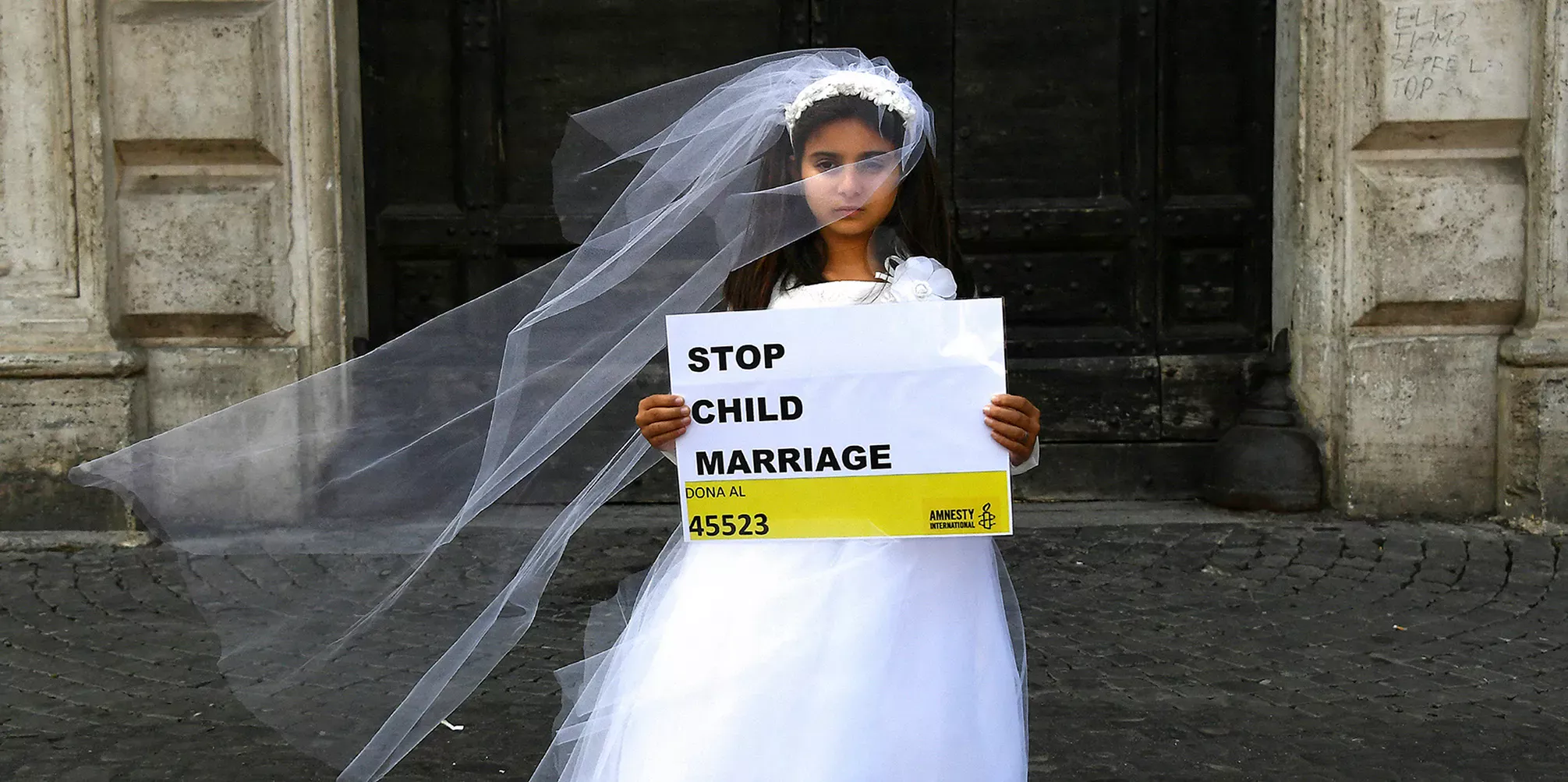Introduction
New Hampshire Child Marriage Laws are critical to understanding the legal boundaries surrounding marriage under the age of 18 in the state. In recent years, lawmakers and advocacy groups have focused on reforming these laws to protect vulnerable children. New Hampshire has made significant changes to its statutes, most notably through House Bill 1516. This article explores the current laws, the challenges they present, and ongoing efforts to reform child marriage legislation in New Hampshire.
Why New Hampshire Child Marriage Laws Matter
New Hampshire Child Marriage Laws impact both children and their families, particularly in terms of legal protection and rights. These laws determine the minimum legal age for marriage and outline the legal processes involved. For years, the minimum age was set at 13 for girls and 14 for boys with parental consent, a loophole many saw as problematic. Child advocacy groups like Unchained At Last have pushed for reforms to prevent coerced or underage marriages that lead to negative social, financial, and health consequences. In 2018, Governor Chris Sununu signed House Bill 1516, raising the marriage age to 16. Yet, there are still exceptions that permit marriages below 18 with court approval, making the issue a continued topic of debate.
Understanding the Key Components of New Hampshire Child Marriage Laws
To fully grasp New Hampshire’s laws on child marriage, it’s important to break down the critical elements:
- Minimum Marriage Age: The current legal age is 16, but marriages can occur between 16 and 18 with parental and court consent.
- Court Approval: A judge must verify the legitimacy of a marriage request if one or both parties are minors.
- Parental Consent: Minors under 18 require parental consent to marry, although this can be waived in certain circumstances.
- Recent Reforms: House Bill 1516 raised the minimum age to 16 from the previous limit of 13 and 14 for girls and boys, respectively.
These laws were enacted to balance traditional family rights with the need to protect children from forced or inappropriate marriages. However, critics argue that allowing marriages under 18 still poses risks, especially concerning educational opportunities and mental health.
Common Challenges in New Hampshire Child Marriage Laws
Despite reforms, New Hampshire’s child marriage laws face several ongoing challenges:
- Parental Pressure: In some cases, minors may be coerced into marriage by their parents or guardians, particularly in families with conservative or cultural views on marriage.
- Court Discretion: While judicial approval is required for minors, critics point out that court rulings may vary widely, leading to inconsistent outcomes.
- Social and Health Impacts: Marrying before the age of 18 often results in negative consequences, such as lower educational attainment, higher rates of poverty, and increased likelihood of domestic abuse.
While raising the minimum marriage age was a significant step, many argue that further restrictions are necessary to fully protect minors from these outcomes.
How to Overcome Challenges in New Hampshire Child Marriage Laws
There are several steps that can be taken to mitigate the issues posed by child marriage in New Hampshire:
- Raise the Minimum Age to 18: Advocates argue that removing exceptions entirely would protect minors from premature marriages.
- Strengthen Judicial Oversight: Implement more stringent guidelines for judicial approval, ensuring that minors are not coerced into marriage.
- Provide Educational Resources: Ensure that minors are fully informed about the potential consequences of early marriage.
- Support for Victims: Increase access to support services, including legal and social assistance for minors trapped in abusive marriages.
- Advocacy by Nonprofit Organizations: Groups like Unchained At Last continue to raise awareness about the dangers of child marriage and advocate for stricter laws.
Implementing these solutions could drastically reduce the negative impacts associated with child marriage.
Real-World Examples and Case Studies of New Hampshire Child Marriage Laws

One of the most well-known cases of child marriage reform occurred in 2018 with the passage of House Bill 1516. This bill, championed by Governor Chris Sununu and child rights activists, raised the minimum marriage age from 13 (girls) and 14 (boys) to 16, closing a major loophole in New Hampshire law. However, advocacy groups like Unchained At Last continue to argue that more needs to be done to protect minors. Their data shows that between 2000 and 2015, approximately 1,200 minors were married in New Hampshire, most of them girls marrying adult men.
This case illustrates both the progress and limitations of child marriage reform in the state. By raising awareness of such case studies, advocacy groups hope to eliminate child marriage entirely in the U.S.
Frequently Asked Questions About New Hampshire Child Marriage Laws
- What is the minimum legal age for marriage in New Hampshire?
- The minimum age is 16, but minors between 16 and 18 need parental and court approval to marry.
- Why was the minimum age for marriage in New Hampshire previously so low?
- Historically, the minimum marriage age was set at 13 for girls and 14 for boys due to outdated legal frameworks that permitted early marriages with parental consent.
- What role do organizations like Unchained At Last play in child marriage reform?
- Unchained At Last advocates for the end of child marriage across the U.S., working on legislation and raising awareness about the negative consequences of marrying before 18.
Key Takeaways for New Hampshire Child Marriage Laws
- Legal Age: The minimum marriage age is 16, but minors require both parental and court consent.
- Recent Reform: In 2018, the state raised the marriage age from 13/14 to 16 through House Bill 1516.
- Ongoing Challenges: Parental pressure, judicial discretion, and negative social impacts continue to pose problems.
- Solutions: Raising the minimum marriage age to 18 and providing better oversight could further protect minors.
- Advocacy Groups: Organizations like Unchained At Last play a critical role in pushing for reforms to protect minors.
Conclusion
New Hampshire’s child marriage laws have undergone significant changes, but challenges remain. Advocacy groups, lawmakers, and organizations continue to push for more comprehensive reforms to ensure that all minors are protected from the negative consequences of early marriage. To fully eradicate child marriage in the state, further legal revisions and public awareness efforts are necessary. For more information on ongoing legislative efforts or support, visit resources like Unchained At Last or the New Hampshire Department of Health and Human Services.
Frequently Asked Questions (FAQs)
The minimum legal age for marriage in New Hampshire is 16, with both judicial and parental approval.
No, marriage for minors under the age of 16 is prohibited in New Hampshire.
Despite several legislative efforts, no law has yet successfully raised the minimum marriage age to 18 without exceptions, although reform efforts are ongoing.
Child marriage is associated with risks such as domestic abuse, educational disruption, and mental health issues.
Many states have already raised their minimum marriage age to 18 with no exceptions, while New Hampshire still allows minors aged 16 and 17 to marry with judicial consent.
Organizations like Unchained At Last are advocating for an increase in the marriage age to 18 without exceptions, to better protect minors from exploitation.
Read More: How to Become a Family Law Attorney: A Step-by-Step Guide
Here are some authoritative, credible, and up-to-date external sources that could be useful for the article on New Hampshire child marriage laws:
EXTERNAL LİNKS
- New Hampshire General Court – Marriage Laws
This official New Hampshire legislative page provides up-to-date details on the state’s marriage laws, including child marriage statutes.
- Unchained At Last – Child Marriage Advocacy
Unchained At Last is a leading non-profit organization dedicated to ending forced and child marriage in the U.S. Their website offers comprehensive data and case studies about child marriage, including specific advocacy efforts in New Hampshire.
- The National Conference of State Legislatures (NCSL)
The NCSL provides a detailed overview of child marriage laws across all U.S. states, including recent legislative updates. It’s an excellent resource for comparing New Hampshire’s laws to those of other states.
- Human Rights Watch – Child Marriage in the United States
Human Rights Watch is a global organization that has published several reports on child marriage within the U.S., including advocacy for raising the minimum marriage age to 18 across all states.
- American Academy of Pediatrics – The Impact of Child Marriage on Health
The American Academy of Pediatrics provides insight into the medical and psychological effects of child marriage on minors, offering important context for understanding the health risks involved.

Jonathan Hartley is a highly regarded senior criminal lawyer with over 15 years of experience in the UK legal system. He began his career at a prestigious law firm in London, where he specialized in both defense and criminal law. Known for his ability to craft compelling defense strategies, Jonathan has successfully represented clients in high-profile cases and earned multiple awards for his contributions to the field of law.
In addition to his legal practice, Jonathan is also an accomplished legal writer, contributing articles to top legal blogs and online platforms. His work not only provides valuable insights into legal matters but also meets Google’s E-E-A-T standards by delivering accurate, reliable, and trustworthy information to readers. Committed to legal ethics and public welfare, Jonathan actively participates in discussions on law and justice while educating the public through his writing.










